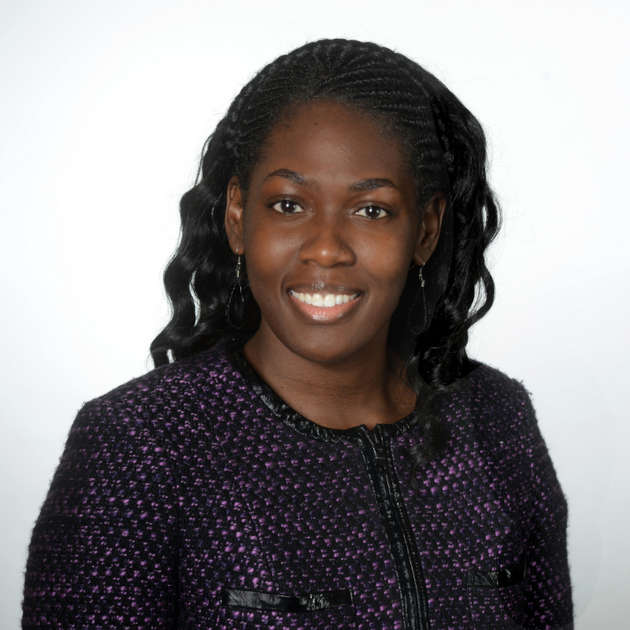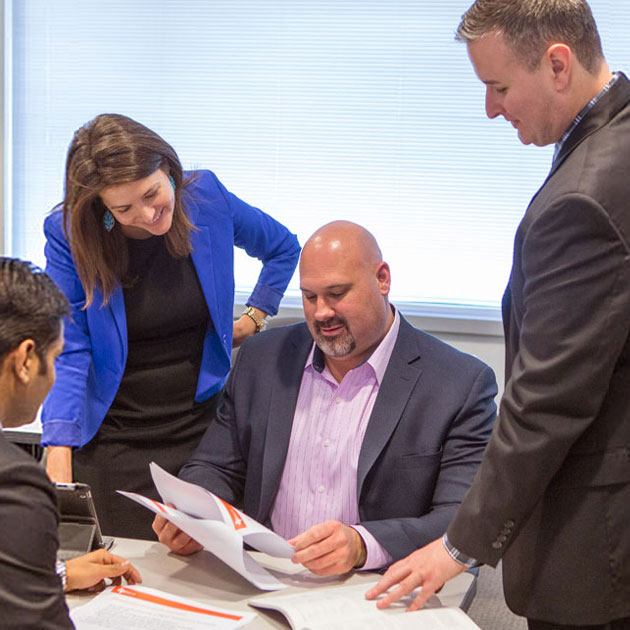
Healthcare providers are often our last resort in times of crisis. When the majority of the population is running scared from screams, cries and gunshots, hospital staffers arrive calmly and do their jobs. This is the scene Jindal School alumna Fallon D. Wallace faced on the night of July 7, when 14 Dallas police officers were shot during a rally and transported to the nearby Parkland and Baylor hospitals for emergency treatment.

Fallon, a Los Angeles native who completed her undergraduate career at the University of California, Riverside with a biology major and chemistry minor, attended the Jindal School to receive her MBA and Master of Science in Healthcare Management degrees, had recently begun her administrative residency at Parkland Health and Hospital System. This process allows residents to complete rotations in emergency management, nursing administration, executive staff and the Office of Talent Management, where she is currently working. Though these different administrative staffs have diversely different responsibilities, in times of crisis they work together cohesively for the well-being of the hospital’s patients and staff.
“The night of the shootings was very emotional,” Fallon says, “but my focus was to provide assistance so employees could provide the best possible care to the officers and other patients in Parkland’s care.”
Despite operating in a different capacity from medical staff, nonclinical staff members like Fallon played an essential role as part of the Incident Command team. Composed of leaders from various operational areas who worked together to ensure the hospital remained functional, the team strived to prevent staff from being overwhelmed and provided support for patients’ families.
Fallon had worked with and observed the Incident Command team during Parkland’s relocation to a new facility a year ago, but she describes July 7 as holding a drastically visible “difference in urgency and emotion” when tending to the seven wounded public servants and two civilians during such a high pressure situation. The team’s objective was not only to secure the 8 million square-foot hospital but also to keep operations functioning.
The most important priority for her that night “was ensuring the medical staff only needed to focus on the patients,” Fallon says. “It was also important to learn as much as possible during this event to be more equipped to handle a major event that may occur in the future.”
Her duties included providing meals — to clinical staff who were there long after their shifts had ended, to the families in the waiting room and to officers who stood guard and flooded the hospital with support for their partners.
The team also monitored the media to stay ahead of the situation. The incident came as a surprise but would not get the best of the experienced Parkland staff.
The effect, in the moment and afterward, was of the team displaying a strong sense of selflessness.
“As employees of a healthcare facility, we knew our priority was to remain dedicated to the health and well-being of individuals and communities entrusted to our care, which is Parkland’s mission,” Fallon says. The events of July 7 showed her, she says, the equal and essential importance of all healthcare staff members when situations reach a critical point.
Recognizing that more tough experiences are likely to lie ahead in her career. Fallon expresses confidence in her ability to face each unique situation. Her time at UTD and her residency have given her knowledge and experience she can rely on in any situation, she says. They also have given her a network of professionals with years of experience who are willing to share advice when an unfamiliar situation arises ahead of her.
The Dallas police shootings left many shaken, and Fallon remembers being advised to take a moment to collect her emotions and thoughts when she needed to, “so I can make the best decisions, learn from each experience what can be prevented and what can be done better.”
Fallon cites her time at the Jindal School as essential to building the foundation her residency has furthered. She advises students in the healthcare program to realize that a career in healthcare comes with a mountain of challenges but is very fulfilling.
“I would also suggest pursuing an administrative residency because it is a great opportunity to obtain healthcare experience, learn the roles of nonclinical staff and hospital operations, network and gain experiences that will prepare them for tough situations., she says.
She now shows the resolute commitment of many medical professionals. “A career in healthcare management [is] a rewarding career,” she says, “that will have events evoking a range of emotions from the excitement of moving to a new hospital to the somberness of a tragic event.”






